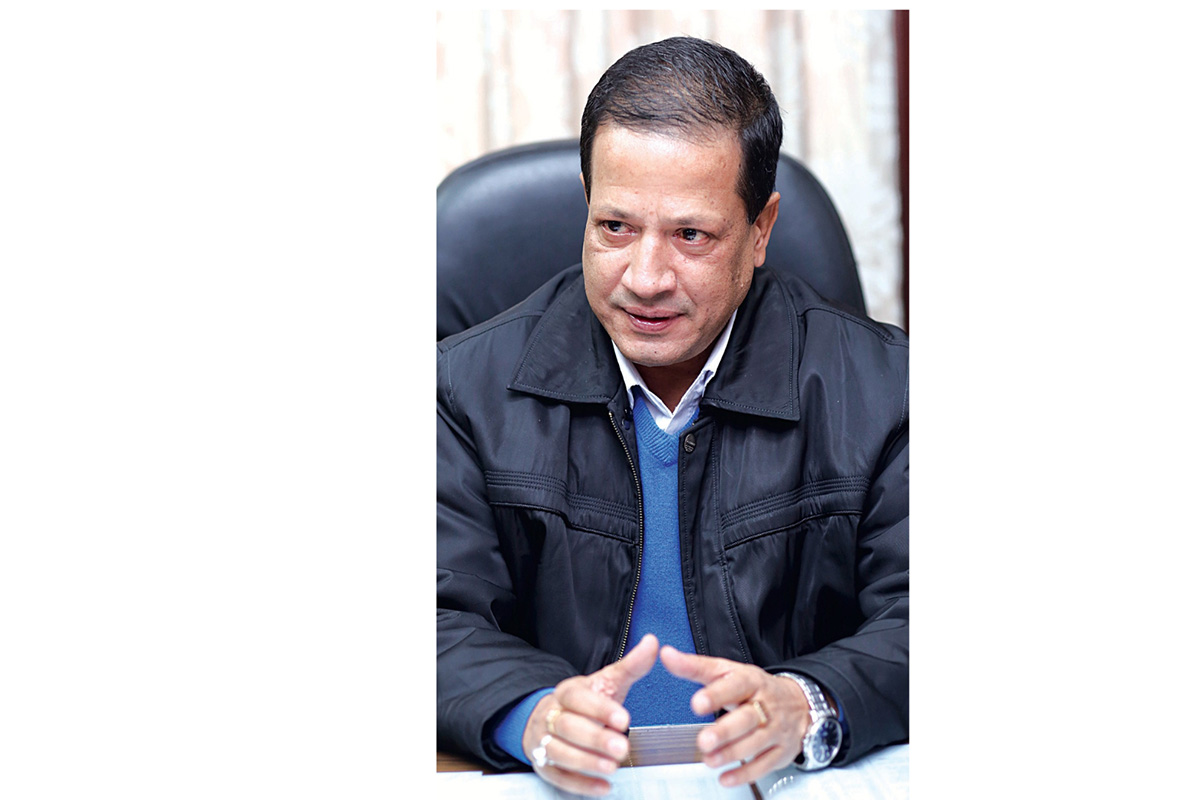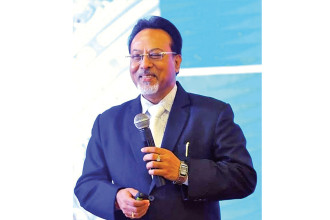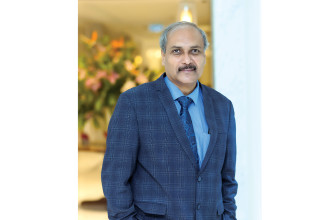
Dr. Sushil Nath Pyakurel is the Chief Specialist and current Acting Secretary of the Ministry of Health and Population (MoHP). He also leads a committee under the Ministry to adjust health employees into the federal system. Prior to this position, Dr. Pyakurel has been instrumental in the fight to eradicate trachoma from Nepal.
B360˚’s Avant Shrestha caught up with Dr. Pyakurel to discuss his role and ambitions as the Secretary of Ministry of Health and Population.
As Secretary of Health and Population what is your main ambition?
I have been working from the root level in this profession - studying and advancing my career over the years. And as a public health expert, health worker and director you tend to easily gain valuable insights and knowledge on the matter and these aspects have definitely helped me reach the position I have today.
I believe health is the right of each and every Nepali citizen regardless of their socio-economic, religious or geographic background and it is our responsibility to deliver proper health services to the public. But having said that, the Health Ministry cannot alone deliver proper health services and awareness among the masses. We require support and collaboration from various stakeholders. We need the assistance of public partners, medical professionals and also the media via different channels to promote hygiene and good health practices.
We are a poor and developing nation so collaborating with various agents within the spectrum can help us achieve our shared goals for the future, which is to make public health a priority in a cost effective and efficient manner.
Again, working together for a certain period or a short term would be counter-effective. What we need to realise is that the Health Ministry’s collaboration should be for the long term. After implementing health policies, strategies and activities, it is important for us along with other Ministries, ADBs, NGOs and INGOs to achieve our goals.
What kind of challenges have you mainly experience?
There are many challenges but we have to look at these challenges as opportunities as well. The country has transitioned to a federal system. But, regardless, the Health Ministry’s activities have been within the root level from the health posts to various wards and to women organisations (Aama Samuha). One of our main challenges is that since there are multiple agents involved, there are structural disturbances and lack of management when finances are set aside for medical usage.
The finance is there but we are still lacking proper management methods and our logistic infrastructure is substandard. Financial support is provided for women’s health and security, hospitals, schools that are given to local bodies… and since there are so many departments that require adequate financial support, we cannot fully track the budget. Generally, the hospitals have certain requirements and demands and the budget allocated for it might not always be sufficient.
For qualitative health and to meet minimum service standards from health posts and hospitals, we also need adequate manpower.
Nepal recently celebrated the elimination of trachoma from the country. Tell us about it.
Elimination of trachoma in Nepal was a huge accomplishment for us as we are the first nation in South and East Asia. For the accomplishment of the complete elimination of trachoma, a joint effort with various other agents was required. We are thankful to Nepal Netra Jyoti Sangh and their employees and ophthalmic assistants in different health posts and hospitals along with other Ministries like Ministry of Education and the Department of Water Supply and Sewerage.
Neglected tropical disease like kala-azar, elephant foot and even trachoma are serious issues in a nation like ours. We are definitely proud to claim that we have eradicated trachoma and are taking strict measures to ensure that the disease does not re-emerge due to negligence on our part. I have conducted lectures in various places about the elimination and reemergence of such diseases; we should not forget that there is a possibility of such diseases resurfacing.
What kind of health issues are the government’s primary issues? What measures are being taken to tackle them?
There are multiple health issues that need to be addressed. As with trachoma, we can eradicate few other diseases in the future as well. We plan to tackle measles and kala-azar in 2019 because the vector for these diseases is small. We can conduct proper research and tackle it.
Although, it is slightly more expensive, we can even mitigate cervical cancer. We have detected the virus for cervical cancer and to put it simply, we have found the vaccine to battle the disease. Moreover, we have also found a vaccine that would stop the virus from developing as well. And if we are able to move forward, it has to be a multi-sectoral effort and I believe that Nepali women can be free of cervical cancer as well. However, its research and treatment might take time and can be expensive.
Additionally, for non-communicable diseases, I believe that Ayurveda should also be promoted although I am an allopathic person myself. But as symptoms related to non-communicable diseases are increasing, it would be better if we start promoting ayurvedic medicines, healthy lifestyle choices and yoga because treatment for non-communicable diseases like kidney dialysis and chronic heart diseases is costly, not only for the patients but also for the government. I believe if we start making better lifestyle choices, many of these non-communicable diseases can be prevented. As a result, our future policy will be guided in a manner that would put emphasis on how we can prevent and mitigate non-communicable diseases.
Right now the government has decided to keep health offices and health check posts in 77 districts, what is the progress?
We are working on it and there definitely were some blunders in the past. There were many aspects that were promised but not delivered. Who was responsible for the decision and implementation is a topic for a different day. But the responsible agents should have been able to provide quality health services as it is the right of every citizen.
We talk about health services and universal health coverage by meeting the citizen’s fundamental rights. These talks have to be turned into actions and in the future that is what we are aiming to accomplish.
Currently, we have been successful in a lot of things and a lot of these aspects that we are working on will go to the cabinet decision soon. We are going to revive training centers in every district as well as making reference stores in seven provinces which means that people do not have to come to the city or general hospitals within the city for minor health check-ups. For the future, we have plans to make hospitals in seven provinces and I believe these plans will be approved.






